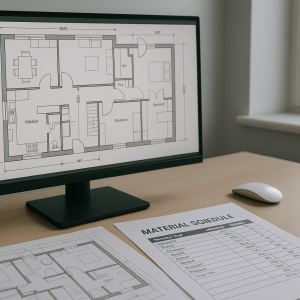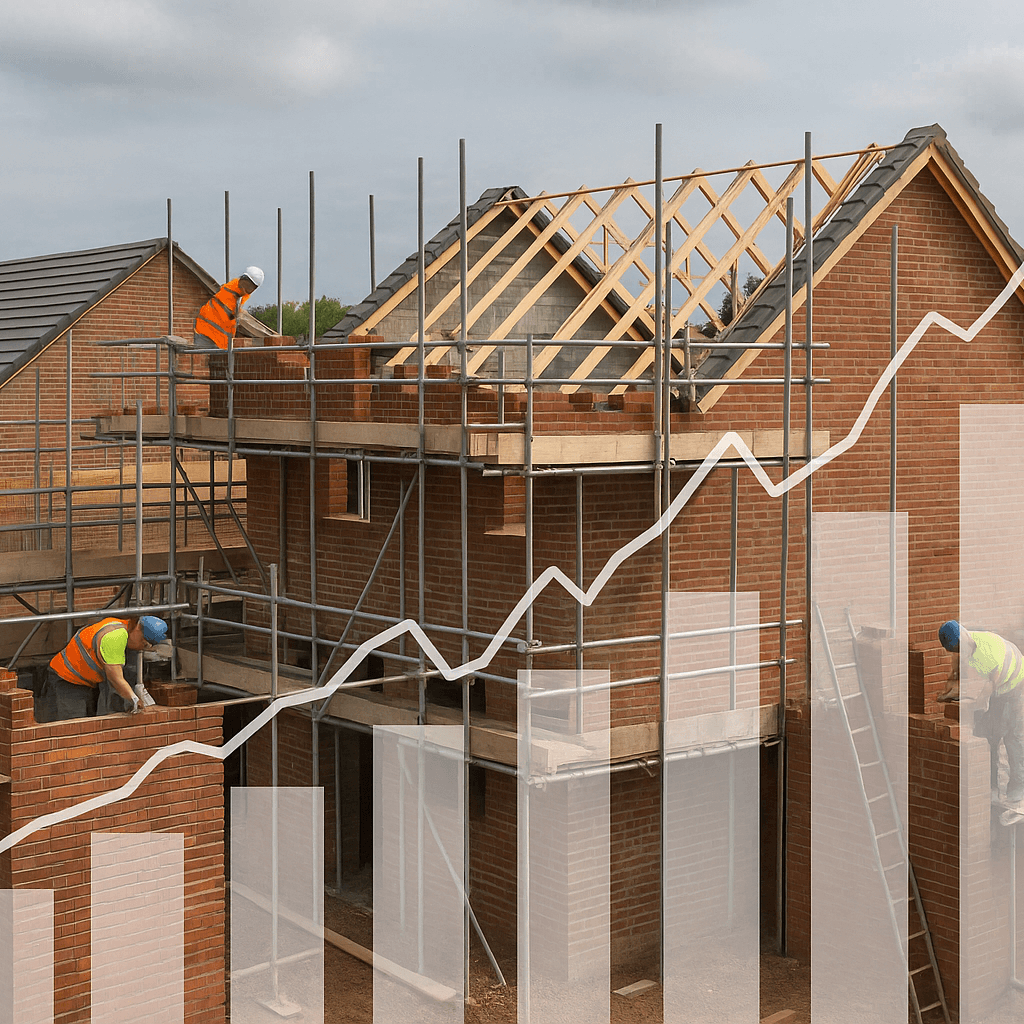Construction estimate services play a crucial role in the success of any construction project. Whether it’s a small renovation or a large-scale development, accurate cost estimation is essential for ensuring a project stays within budget and meets its financial objectives. In this ultimate guide, we will explore the various aspects of construction estimate services, including their definition, importance, key components, types, process, and the benefits of hiring professional estimate services.
Understanding Construction Estimate Services
H3: Definition and Importance of Construction Estimate Services
Construction estimate services refer to the process of predicting the costs involved in a construction project. It is an essential step that helps project owners, contractors, and stakeholders make informed decisions and set realistic budgets. By estimating the costs accurately, it becomes easier to allocate resources and manage the project efficiently. Construction estimate services require extensive knowledge of construction materials, labor costs, market trends, and various other factors that influence project expenses.
The importance of construction estimate services cannot be overstated. Without accurate cost estimates, construction projects may face financial difficulties, delays, and even failure. Estimators play a crucial role in ensuring that projects are financially viable and completed within budget. They analyze various factors, such as material costs, labor costs, equipment costs, overhead expenses, and profit margins, to provide a comprehensive estimate that accounts for all project expenses.
Furthermore, construction estimate services help project owners and stakeholders make informed decisions. By having a clear understanding of the costs involved, they can evaluate different options, prioritize tasks, and allocate resources effectively. This not only ensures the successful completion of the project but also helps in avoiding costly mistakes and unnecessary expenses.
H3: Key Components of Construction Estimate Services
Construction estimate services comprise several key components. These include:
- Material Costs: Estimators need to assess the prices of raw materials required for the project, such as cement, steel, wood, and electrical components. They consider factors like market prices, availability, and quality to provide accurate estimates.
- Labor Costs: Estimators calculate the labor costs by considering aspects like wages, benefits, and productivity rates of skilled and unskilled workers. They analyze the project’s requirements, including the number of workers needed, their skill levels, and the duration of their involvement.
- Equipment Costs: The cost of renting or purchasing construction equipment, such as cranes, excavators, and power tools, is another crucial component. Estimators evaluate the equipment requirements based on the project’s scope and duration, considering factors like rental rates, maintenance costs, and depreciation.
- Overhead Expenses: Estimators account for indirect costs, such as insurance, permits, licenses, and administration fees. These expenses are necessary for the smooth operation of the project but may not be directly tied to a specific task. Estimators carefully analyze and allocate these costs to ensure they are adequately covered.
- Profit Margin: A reasonable profit margin is added to the estimated costs to ensure the project remains financially viable. Estimators consider factors like market conditions, competition, and the project’s complexity to determine an appropriate profit margin. This ensures that contractors and project owners can generate a profit while delivering a quality construction project.
Each of these components requires meticulous analysis and consideration to provide an accurate construction estimate. Estimators rely on their expertise, industry knowledge, and access to relevant data to ensure that all aspects of the project are accounted for. By considering these key components, construction estimate services provide a comprehensive understanding of the project’s financial requirements and help in making informed decisions.
Types of Construction Estimate Services
When it comes to construction projects, accurate cost estimation is crucial for successful planning and execution. There are different types of construction estimate services, each suited to specific stages and requirements of a project. Let’s explore the main types in more detail:
Preliminary Estimates
Preliminary estimates, also known as conceptual estimates, are done in the early stages of a project. They provide a rough idea of the potential costs and help stakeholders determine the feasibility of the project. These estimates are based on industry data, historical project costs, and the project’s general scope.
During the preliminary estimate stage, various factors are taken into account, such as the size and complexity of the project, the location, and any special requirements. Estimators analyze similar projects and use their expertise to provide an initial cost range. This helps project owners and developers make informed decisions about moving forward with the project or making necessary adjustments.
Furthermore, preliminary estimates play a crucial role in securing financing for the project. Lenders and investors often require a reliable estimate to assess the financial viability and potential return on investment.
Subcontractor Estimates
Subcontractor estimates involve obtaining bids from specialized subcontractors who will carry out specific aspects of the project, such as electrical work, plumbing, or HVAC installation. These estimates are crucial for accurate budgeting and finding competitive rates for subcontracted services.
When it comes to construction projects, subcontractors play a vital role in delivering high-quality workmanship and expertise in specialized areas. Obtaining estimates from subcontractors allows project managers to assess the cost of outsourcing specific tasks and compare different subcontractors’ pricing and qualifications.
Subcontractor estimates also help in establishing a clear scope of work and defining responsibilities. By obtaining detailed estimates from subcontractors, project owners can avoid misunderstandings and ensure that all necessary tasks are accounted for in the overall project budget.
Detailed Estimates
Detailed estimates are prepared once the project design and specifications are finalized. They involve a comprehensive breakdown of all costs involved, including materials, labor, equipment, and subcontractor fees. Detailed estimates are highly accurate and serve as the basis for contractual agreements and project scheduling.
During the detailed estimate stage, estimators meticulously analyze all project requirements, including architectural and engineering drawings, bill of quantities, and specifications. They take into account various factors, such as the cost of materials, labor rates, equipment rental, and any potential contingencies.
Estimators use specialized software and industry knowledge to calculate quantities, apply unit costs, and factor in any project-specific variables. The resulting detailed estimate provides a comprehensive overview of the project’s financial aspects, allowing project stakeholders to make informed decisions and plan the project timeline accordingly.
Moreover, detailed estimates are crucial for establishing accurate budgets, obtaining financing, and ensuring that the project remains on track financially. They serve as a reference point throughout the construction process, enabling project managers to monitor costs and make necessary adjustments if required.
Overall, construction estimate services are vital for successful project planning and execution. Whether it’s the initial rough estimate, subcontractor estimates, or detailed estimates, each type plays a crucial role in ensuring that projects are financially viable, well-managed, and completed within budget.
The Process of Construction Estimating
Construction estimating is a crucial step in the planning and execution of any construction project. It involves gathering information, calculating material and labor costs, and finalizing the estimate. Let’s take a closer look at each step:
Gathering Information
The first step in the process of construction estimating is gathering the necessary information. This includes project plans, specifications, drawings, and any other relevant documentation. Estimators meticulously review these documents to gain a comprehensive understanding of the project’s requirements and scope.
During this stage, estimators also assess the potential challenges that may arise during construction. They consider factors such as site conditions, access restrictions, and any special requirements that may impact the overall cost of the project.
In addition to reviewing project documents, estimators reach out to suppliers and subcontractors to gather quotes. They compare prices and evaluate the quality of materials and services offered by different vendors. This step is crucial in ensuring accurate cost estimation.
Calculating Material and Labor Costs
Once all the necessary information has been gathered, estimators move on to the next step: calculating material and labor costs. This involves a detailed analysis of the project’s requirements and available options.
Estimators carefully evaluate different materials, considering factors such as quality, quantity, and pricing fluctuations. They take into account the specific needs of the project and select the most suitable materials that meet both quality standards and budget constraints.
Calculating labor costs is equally important. Estimators determine the labor resources needed for the project and assess productivity rates to estimate the number of hours required. They consider factors such as skill level, experience, and the complexity of the tasks involved.
Estimators also take into account any additional costs associated with labor, such as overtime or subcontracted labor. By considering all these factors, estimators can accurately calculate the total labor costs for the project.
Finalizing the Estimate
Once the material and labor costs have been calculated, estimators compile all the information into a final estimate. This estimate includes not only the direct costs but also the indirect costs, such as overhead expenses and profit margins.
Estimators meticulously review the estimate to ensure that all aspects of the project have been accounted for. They double-check quantities, prices, and any other relevant factors to minimize the risk of errors or omissions.
After finalizing the estimate, estimators present it to project stakeholders. This includes the client, project managers, and other key decision-makers. Estimators provide supporting documentation, such as a bill of quantities or a detailed breakdown of costs, to enhance transparency and facilitate informed decision-making.
The estimate serves as a crucial tool for project planning, budgeting, and securing funding. It provides stakeholders with a clear understanding of the project’s financial requirements and helps them make informed decisions regarding the project’s feasibility and viability.
In conclusion, construction estimating is a meticulous process that involves gathering information, calculating material and labor costs, and finalizing the estimate. By following these steps, estimators ensure that projects are accurately budgeted, helping to avoid cost overruns and delays.
Benefits of Professional Construction Estimate Services
Professional construction estimate services provide several benefits to project owners and contractors. Let’s explore some of the key advantages:
H3: Accuracy and Efficiency
Hiring professional estimate services ensures accurate cost estimation, reducing the likelihood of cost overruns and financial setbacks. Professional estimators have the expertise to consider all variables involved and perform detailed calculations, resulting in precise estimates. This accuracy contributes to efficient project management and enables informed decision-making from the initial planning stages to final completion.
H3: Cost Savings
Professional estimators have extensive knowledge of construction materials, market trends, and costs. They can identify cost-effective alternatives without compromising quality, allowing project owners to make cost-saving decisions. By accurately assessing material and labor costs, professional estimate services help avoid unnecessary expenses and maximize the project’s financial returns.
H3: Risk Mitigation
Construction projects involve inherent risks, such as unforeseen circumstances, market fluctuations, and potential delays. Professional estimate services help mitigate these risks by providing accurate cost projections and contingency plans. With a well-prepared estimate, project owners and contractors are better equipped to handle unexpected situations, reducing the chances of financial loss or project delays.
Construction estimate services are indispensable in the construction industry. They provide clarity, accuracy, and financial control to ensure that projects are completed within budget and to the highest standards. By understanding the definition, importance, key components, types, and process of construction estimate services, project stakeholders can make well-informed decisions and achieve successful project outcomes.
Ready to take the next step in ensuring your construction project’s success? At Cost Estimator, we specialize in providing detailed and accurate builders estimating services tailored to the unique needs of the UK construction industry. Our team of expert estimators is equipped with the latest tools and methodologies to deliver precise cost estimates that reflect the current UK market trends. From material costs to labor and overheads, we meticulously analyze every aspect of your project to maximize efficiency and cost savings. Don’t leave your project’s financial viability to chance. Upload your plans today and receive a comprehensive estimate that sets the foundation for a successful build.











